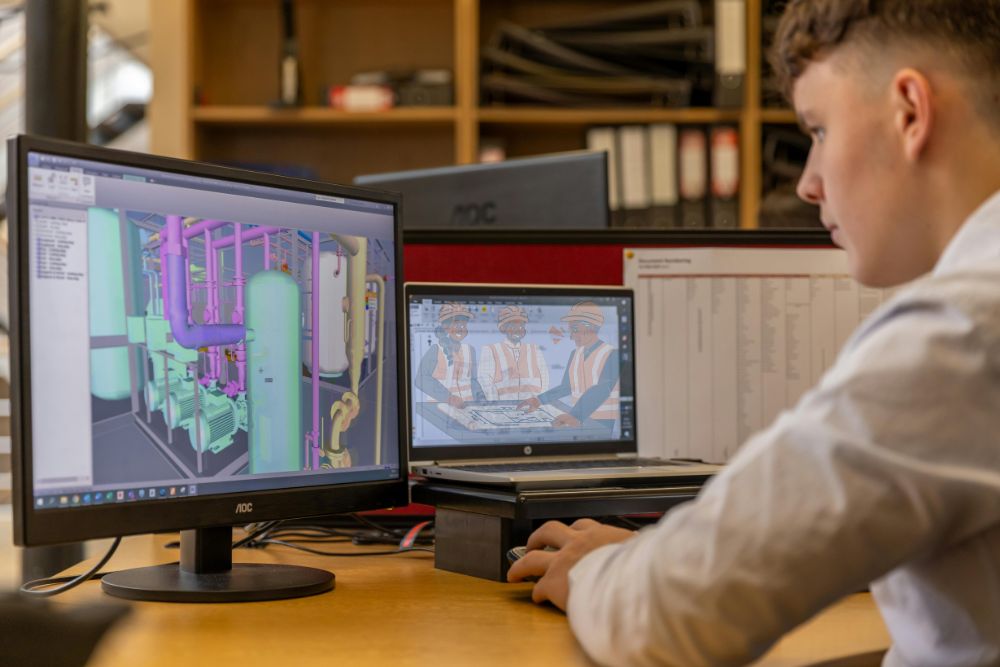The advent of digital technologies is redefining the workflows of the chemical industry. From its design inception to its operational phases, chemical engineering is becoming more accurate and enabled to make decisions more seamlessly through digital technology. As a consequence of these advancements, chemical plants are now primed to meet the modern demands of a safer and more efficient workplace.
Adopting the Transformation of Digital Innovations in Chemical Engineering
The adoption of the digital transformation in chemical engineering is one of the most useful advancements made in this field. Chemical engineers are now capable of designing and simulating chemical processes in advanced modeling and engineering simulation software, allowing them to virtually test and refine prior to any physical set up. This, in turn, helps with the rapid reduction of the time and cost of development and design errors. Increasing efficiency and minimizing errors are now made possible through the use of digital twins which are virtual replicas of the physical systems.
The Process Automation in Chemical Plants
The use of process automation in chemical plants to replace manual systems which enhances productivity are under the digitalization framework of Process Automation in Chemical Plants. This is possible through automation technologies like distributed control systems (DCS) and programmable logic controllers (PLCs) that processes real time data from sensors and instruments. Plants are now capable of optimal operational conditions with minimal human error improving reliability and through improved chemical engineering, the yields have now enhanced.
Smart Manufacturing in Chemical Industry
Smart manufacturing in chemical industry Sector is transforming digitally integrated production processes. These processes include maintenance prediction, energy consumption optimization, and supply chains. Enhanced smart manufacturing improves cross-plant and or cross-departmental visibility, which encourages collaboration. These improvements positively affect decision-making as well. Enhanced smart manufacturing improves decision-making and visibility around the plant, foster collaboration, herding cross-department and cross-plant collaboration for decision-making improvements. All these improvements positively affect plant and company down time. Enhanced smart manufacturing improves decision-making and visibility around the plant, fostering collaboration for cross-department and or cross-plant collaboration for decision-making improvements. All these positive changes contribute towards increasing plant sustainability.
Industrial IoT in Chemical Process Design
The change in data collection processes and data collection techniques through Industrial IoT in chemical process design is remarkably impactful. Engineers are now able to monitor temperature, pressure, flow and other relevant metrics through connecting equipment and injecting sensors to a central platform. This also enhances plant reliability. This reliability is attributed to program maintained free equipment failures. IoT by nature helps in the need of insightful data which improves maintenance schedule by predicting failures. Enhanced smart manufacturing improves decision-making and visibility around the plant, fostering collaboration for cross-department and or cross-plant collaboration for decision-making improvements. All these positive changes contribute towards increasing plant sustainability.
AI and Machine Learning in Chemical Plant Optimization
Optimization is undergoing a paradigm change with the advent of AI. The scope of AI and Machine Learning in chemical plant optimization allows for system-based learning from the past and real-time data for recommending process enhancements. These technologies provide opportunities for better and more refined process control and monitoring of energy savings and quality assurance. AI algorithms are capable of making peak performance changes automatically in some cases without the need for human intervention.
Conclusion
Digitalization redefines the entire operational concept of chemical plants. These trends transform the structure and operation of chemical plants to more energy-efficient, IoT and AI powered technology. Chemical plants willing to implement these changes stand to gain a lot, like lower energy consumption and emissions, a user-friendly interface, and a lower operating cost.
